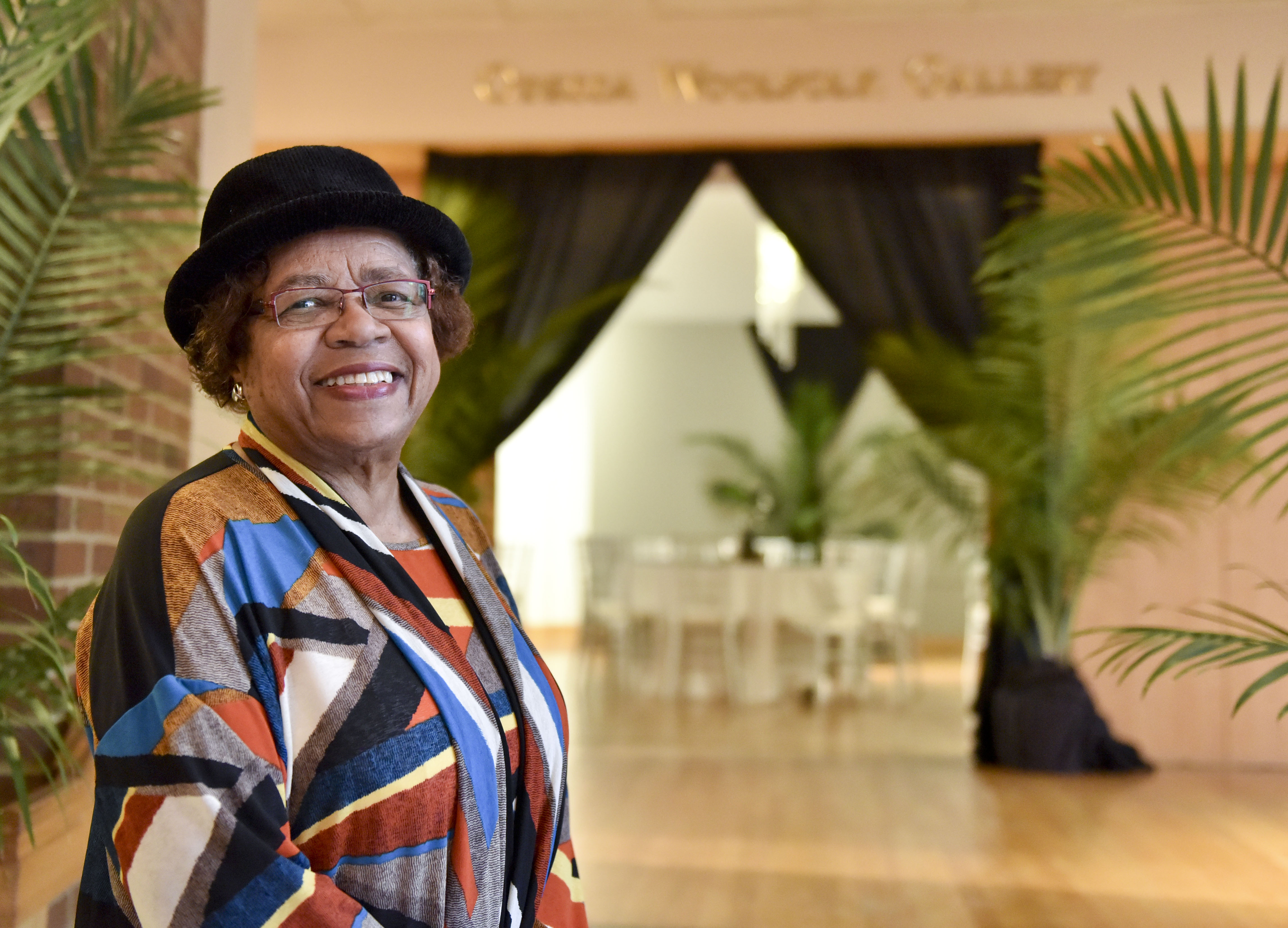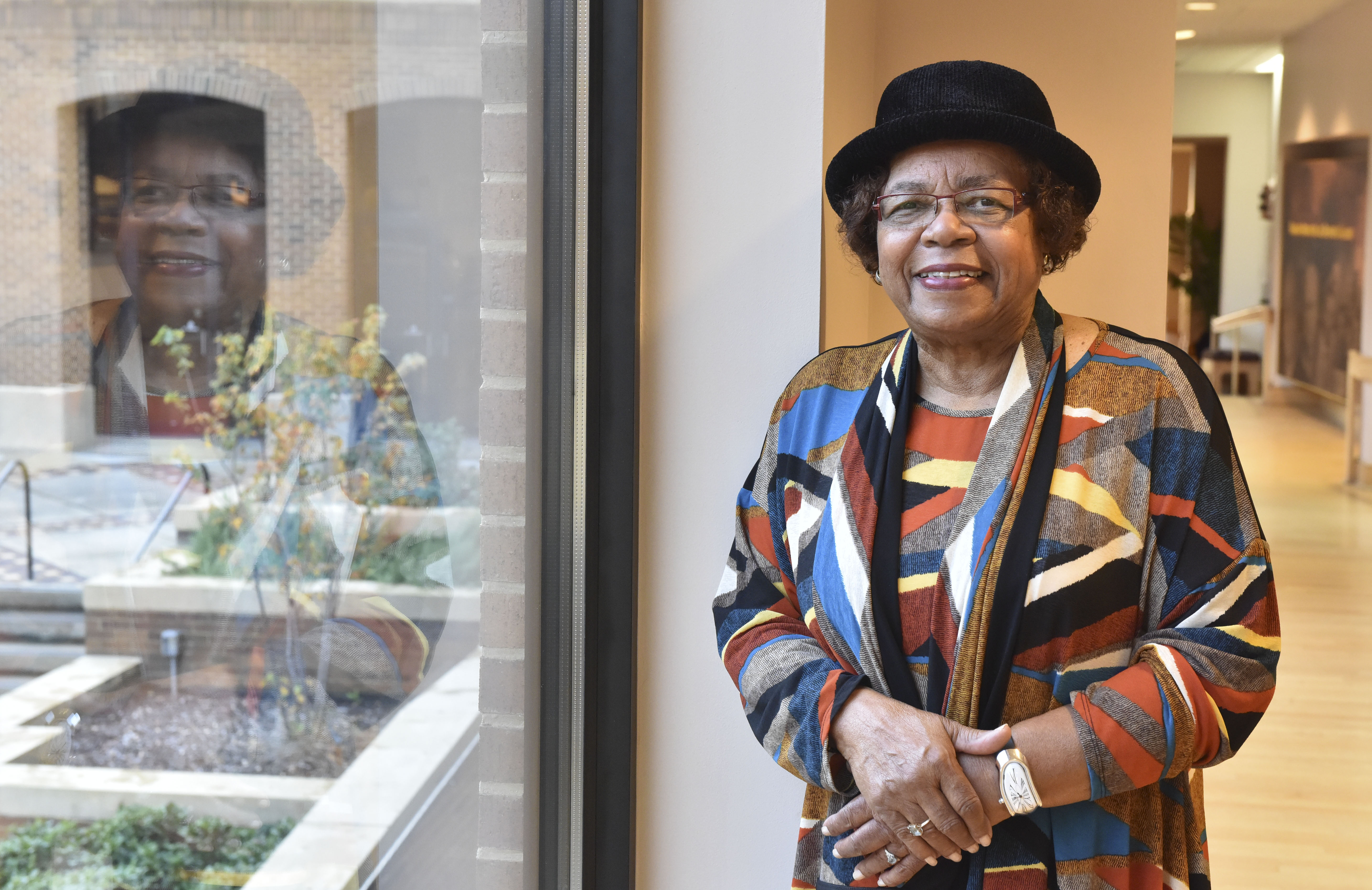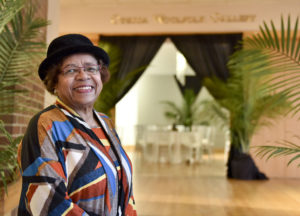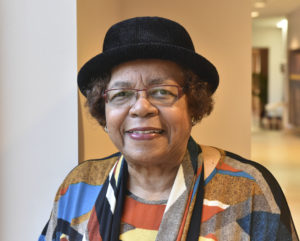
By Anita Debro
For the Birmingham Times

When Odessa Woolfolk walks into the Birmingham Civil Rights Institute (BCRI), it is almost like she is walking into her own home. She is greeted warmly by all as she makes her way through the halls of the administrative building. She stops to talk to several people, asking about their families and chatting about the news of the day.
“It is a like a family here,” she said after greeting a beaming teenager who is a part of the institute’s youth docent program.
But when you ask Woolfolk if the institute has become her home away from home, she would rather liken her relationship with the institute to a more intimate extension of herself.
“I look at his place as if I were a parent seeing her children grow up,” she said.
It is understandable that Woolfolk feels maternal about this building, having nurtured the tiny seed of an idea into its full-grown reality as a multifaceted institution that is celebrating its 25th anniversary this year.
Perfect Fit

Former Birmingham Mayor Richard Arrington Jr. chose Woolfolk to lead the 21-member task force that guided the planning and formation of the institute.
Woolfolk, who grew up in Titusville, was the perfect fit for the effort. She was an educator who had public policy experience, and she also had vivid memories of that time in Birmingham when a bomb ripped through the Sixteenth Street Baptist Church and when nonviolent groups were met with water hoses and snarling dogs. Plus, she was a teacher at historic Ullman High School during the civil rights movement in Birmingham. Woolfolk, the BCRI’s founding board chair, knew instantly that she wanted to be a part of creating such a monument in the city.
“What happened here in Birmingham was transformative,” she said. “We wanted to tell the story of how a movement of nonviolence was used to resolve conflict.”
Woolfolk and members of the task force set out to do just that—tell the story of what happened in Birmingham during those turbulent times. Those years of steering the task force were difficult, she recalled. It was a challenge to convince so many people that the institute was necessary for the education of a new generation of children who had not witnessed what happened.
“People just wanted to forget the pain of that time,” she said.
Oral History Project
Despite the opposition, Woolfolk continued to push forward, and eventually the task force made decisions on the design and exhibitions. She was adamant about giving credit to Birmingham’s foot soldiers, those residents who were on the front lines of and made a huge difference during the city’s demonstrations.

“The Birmingham civil rights movement succeeded in large part because of the tenacity of the Rev. Fred L. Shuttlesworth and his team, as well as the courageous foot soldiers,” she said. “It was important to the BCRI founders that [those] stories were highlighted, and the initial Oral History Project was implemented to pay tribute to their valor.”
Woolfolk is most proud of the Oral History Project, a collection of around 400 video and audio taped interviews of those foot soldiers and other witnesses to the civil rights campaign in Birmingham. Efforts are underway to digitize those interviews so they can be more readily used and efficiently stored because the institute is running short on storage space.
The BCRI, which is part of the Birmingham Civil Rights National Monument and an affiliate of the Smithsonian Institution, has grown into a cultural and educational research center that promotes a comprehensive understanding for the significance of civil rights developments in Birmingham. It reaches more than 150,000 individuals each year through its award-winning programs and services. Since its opening, more than two million visitors have come through its doors.
Chair Emerita
Woolfolk said she would like to see the institute continue to grow to provide more space for archives and more meeting space to host conferences that continue the dialogue of equality. She also hopes the A.G. Gaston Motel, another location designated as part of the Birmingham Civil Rights National Monument, will be a part of that expansion.
Though Woolfolk is no longer a voting member on the board, she remains a fixture at the BCRI. The Odessa Woolfolk Gallery is named in her honor, and she continues to serve as founding president and chair.
Woolfolk can’t imagine a time that she will not be involved with the BCRI in some capacity: “It’s tricky because you want to make sure you don’t overstay your welcome,” she said. “But that’s the good thing about being chair emerita—I get to say all the things I want to say, but nobody has to listen.”




